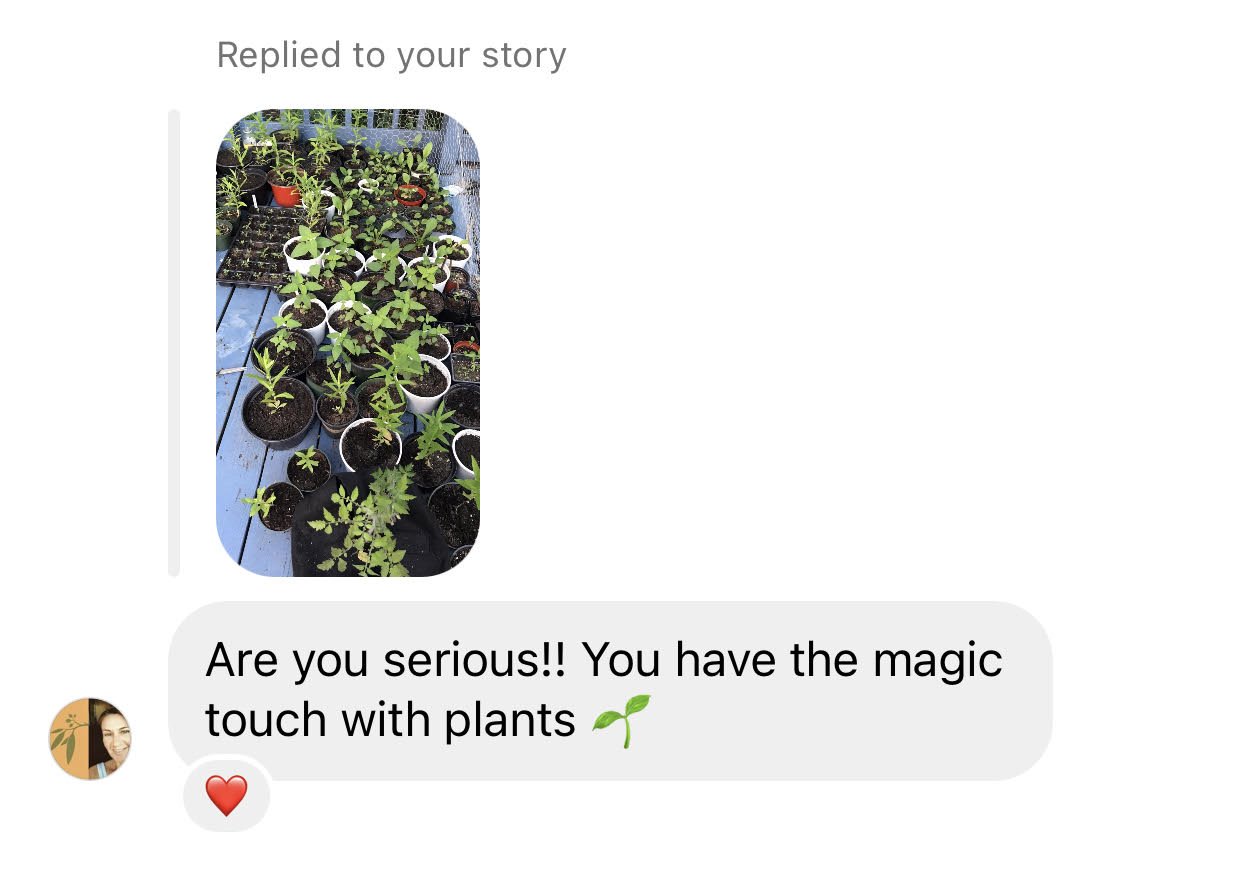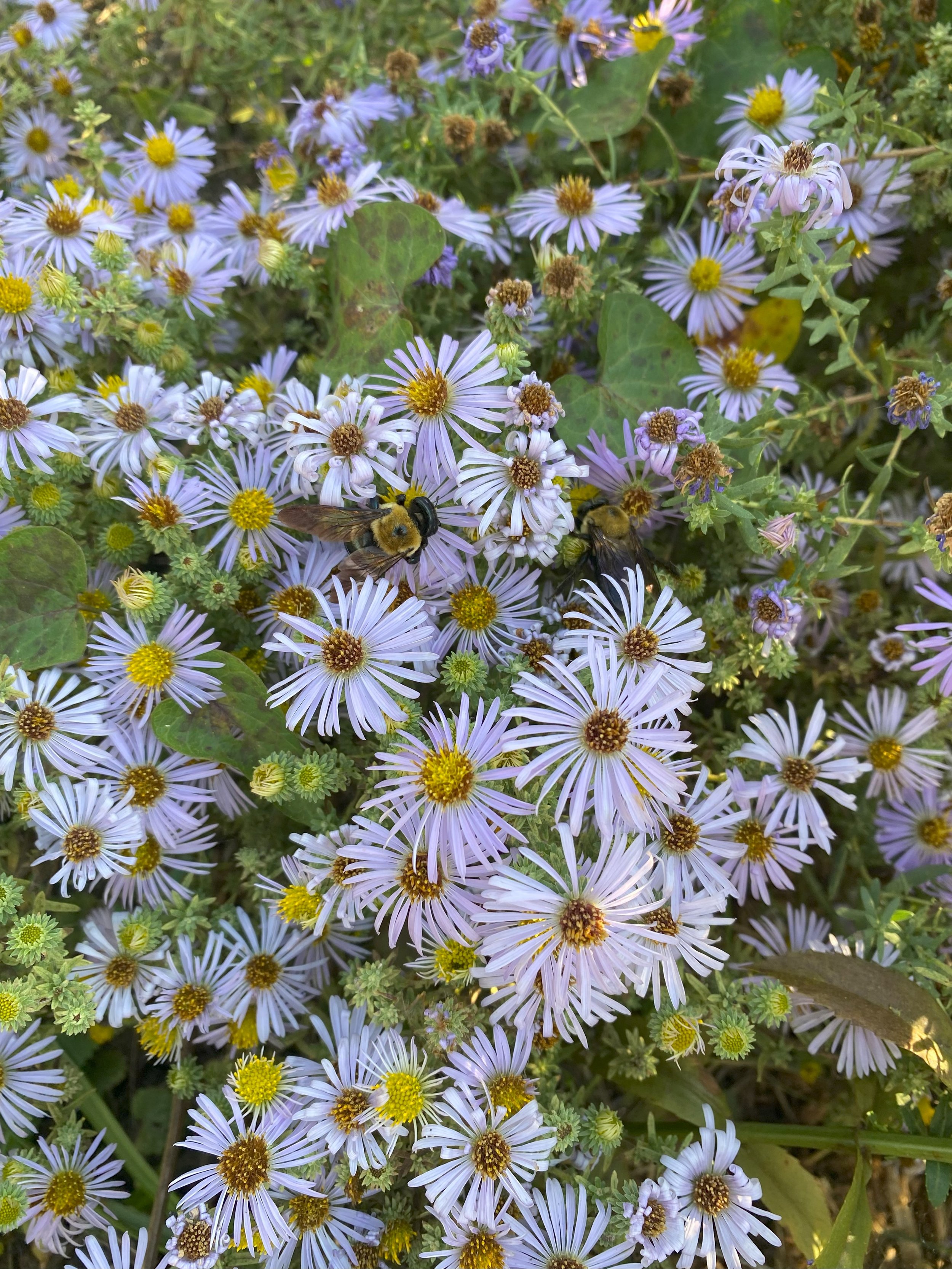
Gardening for the Future
An online course to transform your North American yard into an ecological oasis.
Lawns are an ecological nightmare and a waste of space, water, and time.
Learn how to easily create an eco-garden that needs less maintenance with every season
Want to help the environment but don’t know how?
Turning your yard into an ecological garden is one of the most impactful things an individual can do for the planet
Want to kill your lawn and fire your lawn maintenance crew?
Lawns are an ecological nightmare and a waste of space, water, and time. Learn how to create a regenerative garden that needs less maintenance with every season
Learn the right plants for your region and your yard and how to work with nature instead of against it
Tired of fighting with your yard?
What people are saying about Gardening for the Future
What does this course cover?
Topics discussed are relevant to anywhere in the contiguous 48 US states and the southern half of Canada
-

Composting methods and recipes that won’t overwhelm you
-

Building healthy soil with a microbiome that can grow anything
-

How to know what species to plant for your region and your specific yard
-
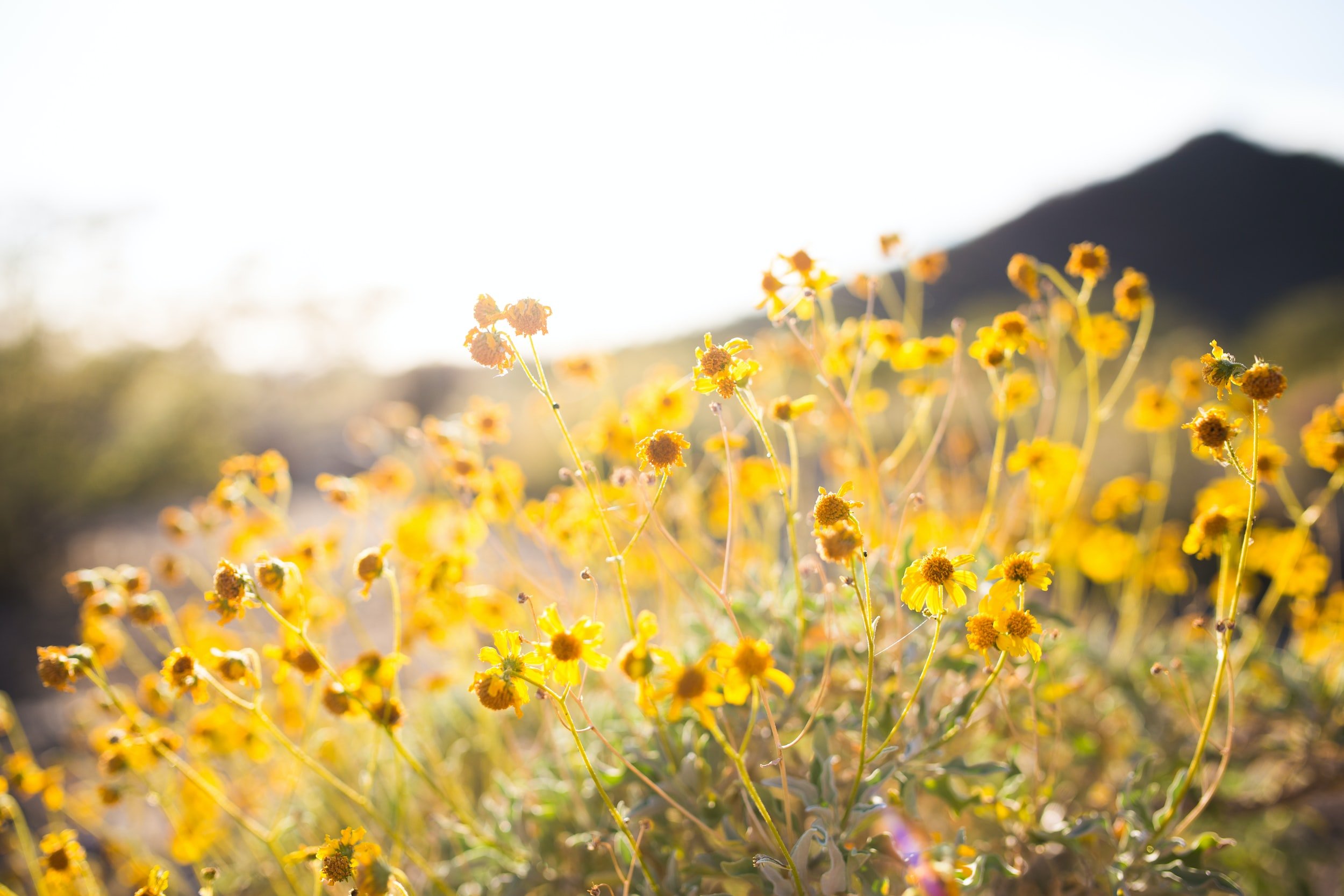
Managing your yard holistically and regeneratively
-

Identifying plants in your area without having to memorize anything
-

What ACTUALLY eco-friendly pest control looks like
-

How your yard can help save threatened and endangered wildlife
-
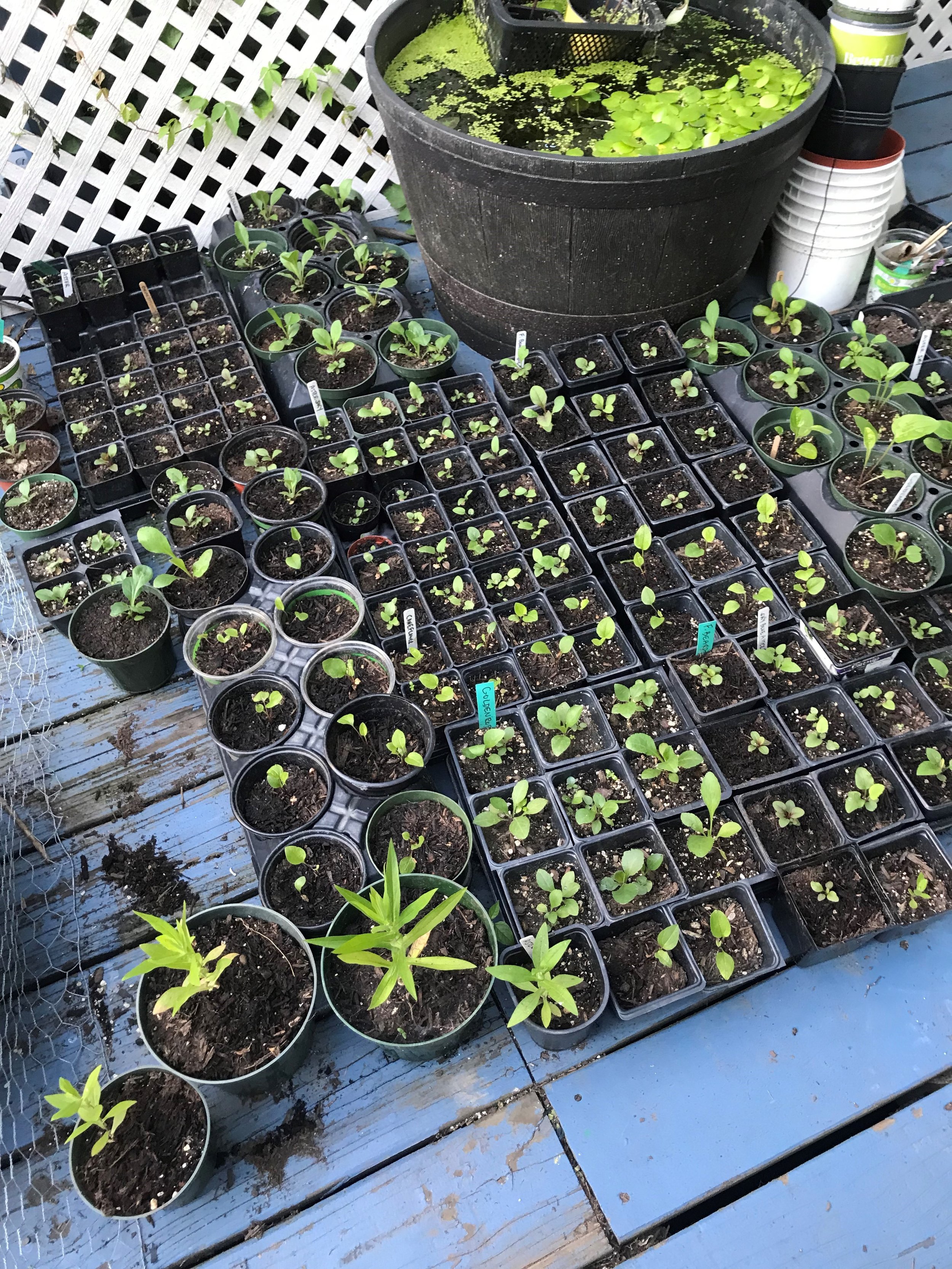
Saving money and resources by growing from seed
-

Turning a lawn into a garden
-

How your yard can drastically reduce your carbon footprint
-

Reducing your yard’s water usage
-

Increasing your self-sufficiency during uncertain times
VALUE
12+ hours of content = $1800+
Guest lectures = $450+
Worksheets & E-books = $200+
Discord community = $25/month
AND lifetime access to new content + future live calls = the limit does not exist
= $2750+
You pay $2750 $297
Interest-free payment plans available!
Frequently Asked Questions
-
Nope! The material is pre-recorded and students have lifetime access to the course, so you can go at your own pace. And revisit it whenever you’d like.
-
Eco-gardening can absolutely be done at a slow pace and in small areas at a time. A little improvement is better than no improvement!
We also have students who live in apartments or don’t have an outdoor grow space but grow in containers, community gardens, guerilla gardens, etc.
-
As far as legalities, there are ways around it and we discuss this in the course!
Adding fences, rocks, and other hardscaping can make it look more intentional. Adding signs that explain what you’re doing is also helpful.
And you can get your yard certified with the NWF as a wildlife habitat and they’ll send you a sign and paperwork for about $40 (it’s cheaper if you don’t get the sign.) I did this last spring and I haven’t gotten any complaints from the city since!
-
Each individual site and gardener is going to have their own timeline and expenses based on size, the current condition of the land, whether they already have a garden or are starting from lawn, etc.
Items that you’ll most likely need:
Seeds or starter plants
Shovel
Containers for composting (can be DIY or purchased)
Cardboard or tarpMulch
Plant clippers/a scythe/something to chop with
Gloves
Substrate - compost, coco coir, bagged soil, etc. (you don’t need enough to cover the whole site, just a handful or two per plant or seed and enough to fill any raised beds, etc.)
Items you might need depending on your project and your wants:
Composting worms
A broad fork
Landscaping pins
Chainsaw or handsaw
Woodchipper
Rainbarrel
Microbial inoculants (~$30)
Air pump
-
The first year is the most work because you’re working to improve the soil, planting new plants that are still establishing, getting rid of invasive species, etc.
If you can achieve that in the first year, then the following year you wouldn’t need to do much aside from planting your annual vegetables, putting compost on the soil, and possibly irrigating your vegetables depending on what’s growing and how much rain your area gets.
If it takes you longer than a year to achieve those things, you’ll still need to do less work each year until it gets to the point where things are self-sufficient. Regenerative growth is exponential and doing a little can still go a long way!
How does the course work?
Get access to 12+ hours of video learning
Along with worksheets, written guides, guest lectures, pop-up live Q&As, and actionable homework.
You’ll be able to access the content for the lifetime of the course
So there’s no hurry to get everything finished! Feel free to move at your own pace.
You’ll also get lifetime access to the Native Yardening Discord server
where you can chat with other students, share your progress, ask questions, etc.
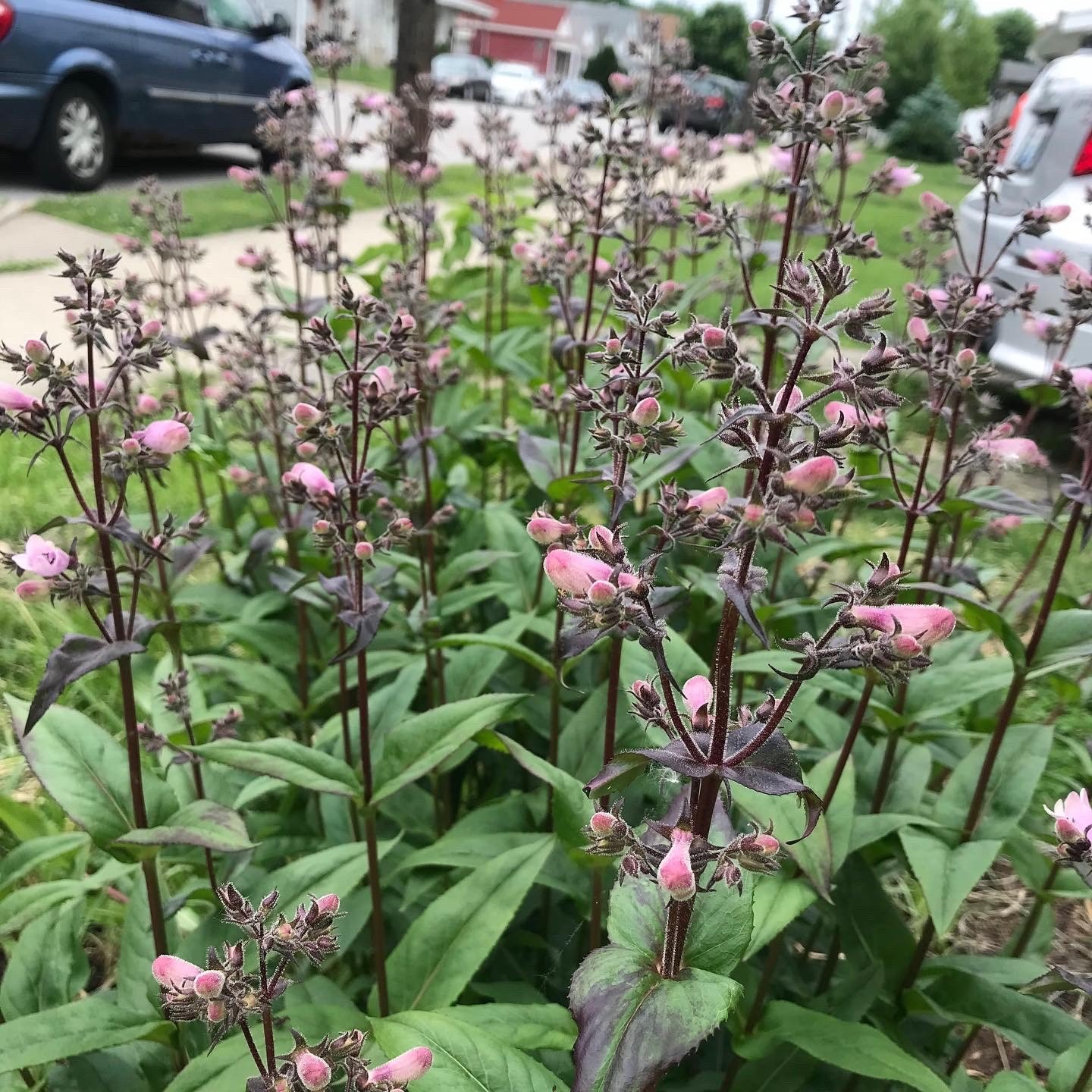
Your yard could
Students were asked, “What are your thoughts on the course in general?”
Did you know…
We’re living in one of the largest mass extinction events to ever happen on Earth
Currently, 40% of insect species globally are declining and 1/3 are endangered. (Source: Sanchez-Bayo & Wyckhuys, 2019)
This summer has already broken multiple records for global temperatures
Homeowners on average use 10x the amount of pesticides and fertilizers per acre on their lawns as farmers do on crops (Source: Columbia University)
30-60% of fresh water in urban areas is used on lawns (Source: Columbia University)
As of 2014, 79,535 sq miles of land was used solely for lawns. That’s approximately the size of the entire state of Minnesota, the 14th largest state by land in America. (Source: Schindler, 2014)
Why Native Yardening?
Hey, I’m Tory and I’ll be your teacher for Gardening for the Future! I’m an ecologist and a landscape consultant from Northern Kentucky.
I’ve been a gardener for 10+ years and I have a Master of Science degree in sustainable design.
During my graduate studies, I received landscape architecture training and researched the environmental impacts of native vs foreign plant species and soil health.
I was also awarded master's certificates in Design of Resilient Communities and Sustainable Leadership.
I’ve also received my certification in Regenerative Soil Science from Matt Powers.
I was an art teacher for 4 years and I’m passionate about education. People have always told me I have a gift for making big complex concepts easy to understand.

















